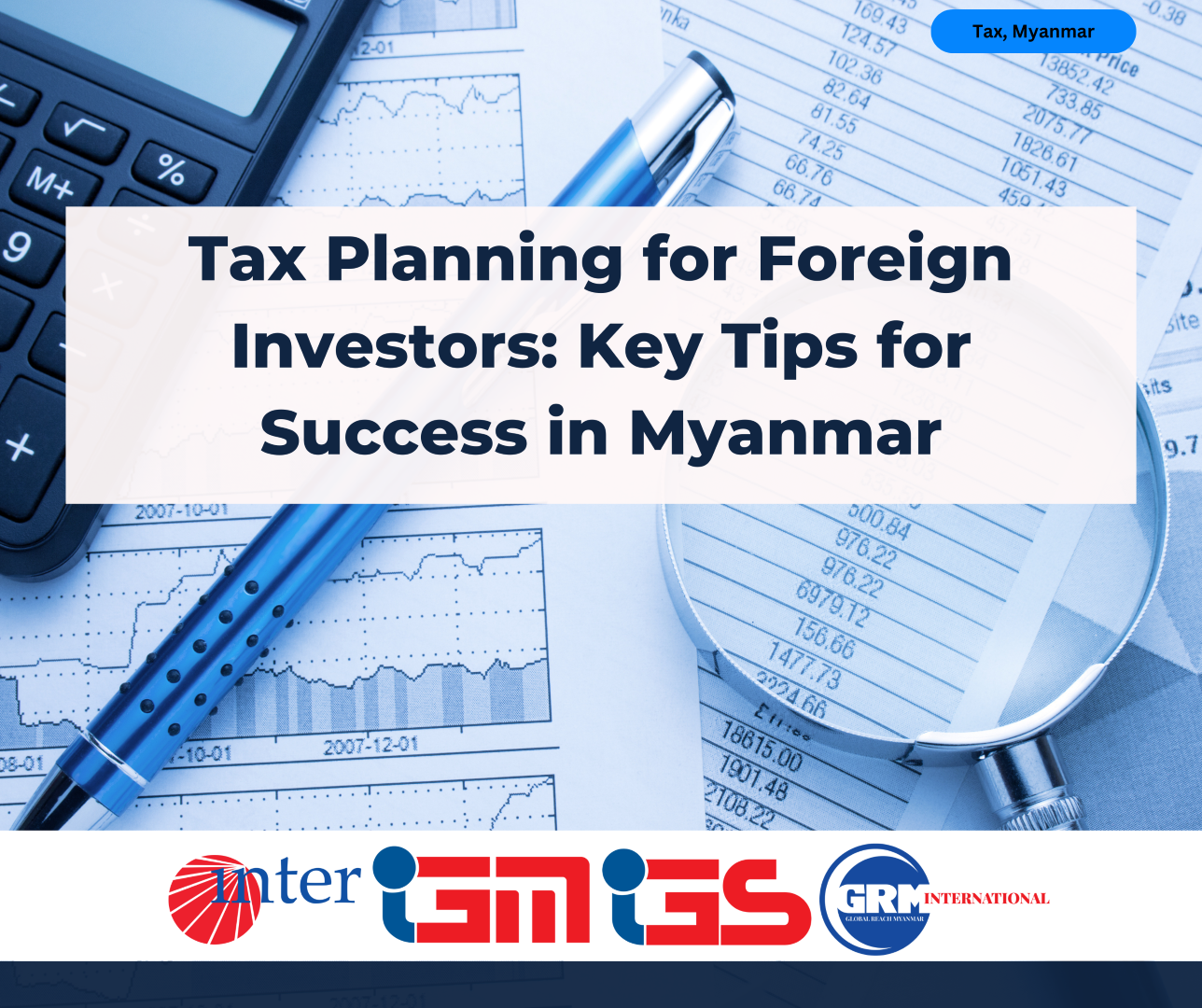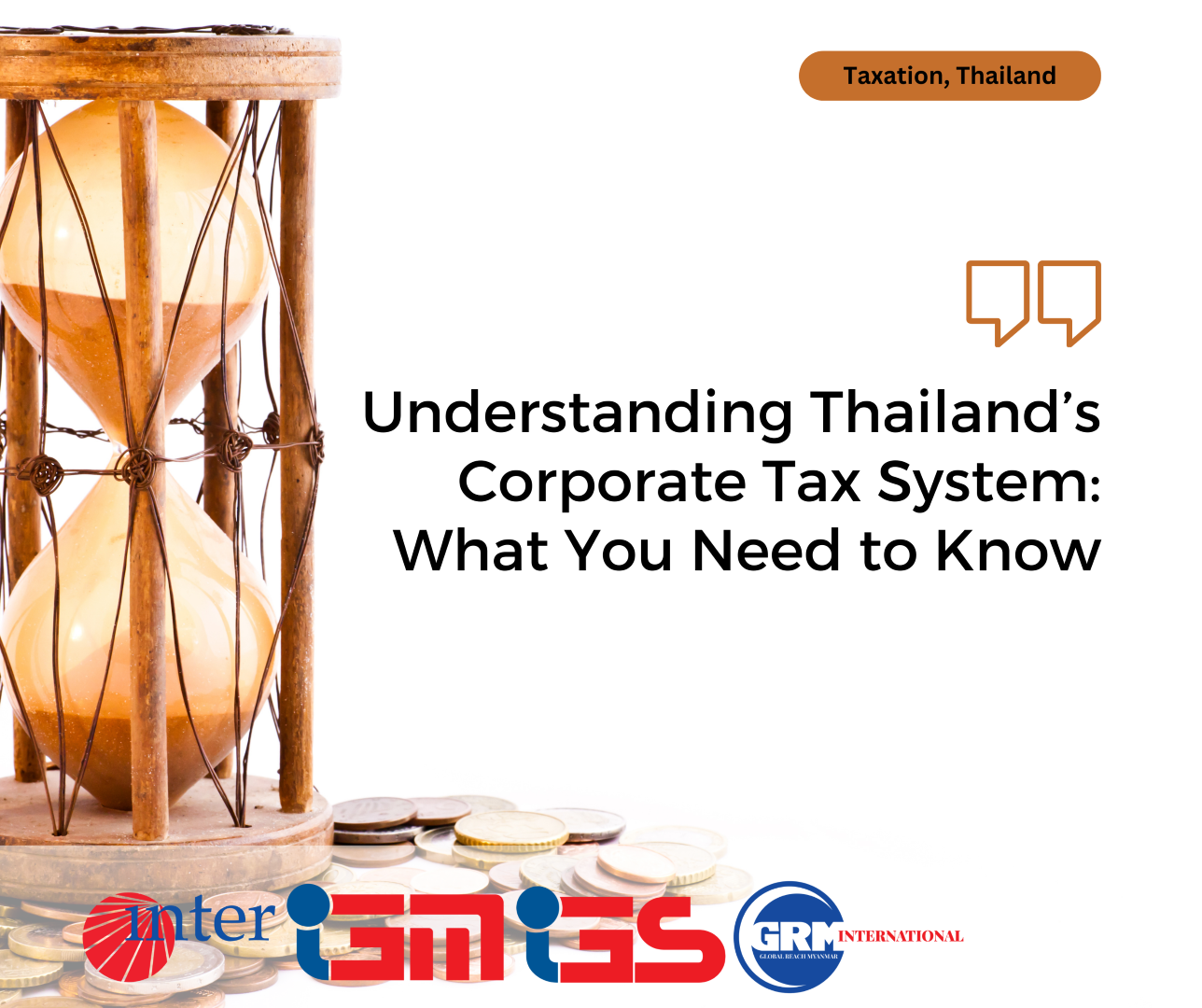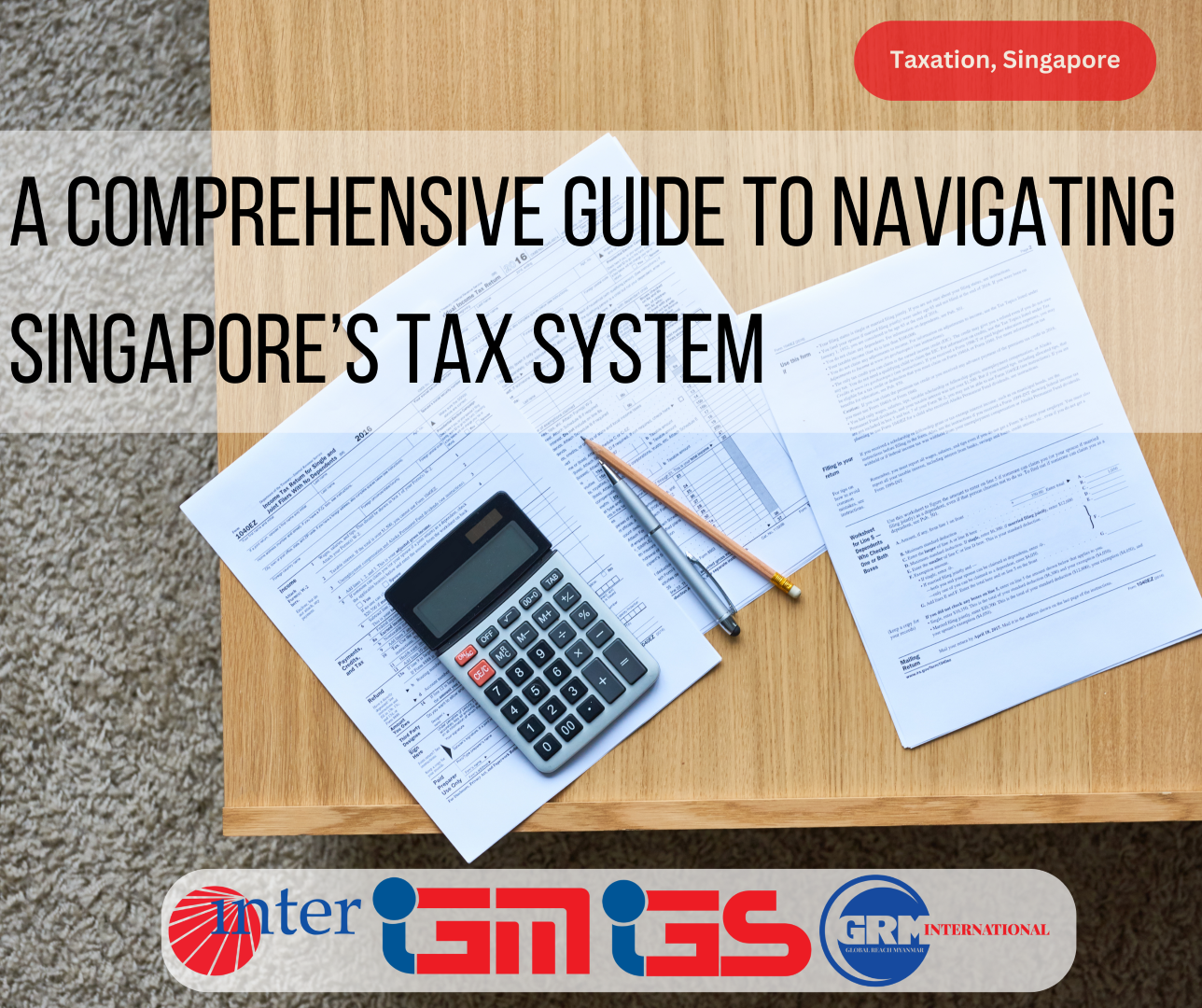
Tax Planning for Foreign Investors: Key Tips for Success in Myanmar
Tax Planning for Foreign Investors: Key Tips for Success in Myanmar
Myanmar, with its rich resources and emerging market opportunities, has attracted significant attention from foreign investors. However, navigating the complex tax landscape can be challenging. Effective tax planning is crucial for maximizing your investment and ensuring compliance with local regulations. In this blog, we will explore key tax planning tips for foreign investors in Myanmar and how Inter Group can support you in this process.
- Understand Myanmar’s Tax System
Myanmar’s tax system is governed by the Income Tax Law, which outlines various taxes applicable to both local and foreign entities. As a foreign investor, it’s essential to familiarize yourself with the following key taxes:
- Corporate Income Tax (CIT)
- Standard Rate: The corporate income tax rate in Myanmar is set at 25% for most companies. However, businesses engaged in specific sectors, such as agriculture and manufacturing, may benefit from lower rates under certain conditions.
- Tax Residency: Companies are considered tax residents if they are incorporated in Myanmar or if their effective management is located within the country. Tax residents are taxed on their worldwide income, while non-residents are taxed only on income sourced from Myanmar.
- Commercial Tax (CT)
- Tax Rate: A Commercial Tax of 5% is levied on the sale of goods and services, with specific exemptions available for certain industries. This tax is applicable to both local and foreign businesses.
- Withholding Tax (WHT)
- WHT Rates: Various payments, including dividends, interest, and royalties, are subject to withholding tax. The rates vary depending on the type of payment and the recipient’s tax residency status.
- Take Advantage of Tax Incentives
Myanmar offers several tax incentives to encourage foreign investment, particularly in designated sectors and regions. These incentives may include:
- Tax Holidays: Certain investments may qualify for tax holidays ranging from three to seven years, depending on the sector and investment size.
- Investment Incentives: The Myanmar Investment Commission (MIC) provides various incentives for projects deemed beneficial for the country, such as reduced tax rates or exemptions on import duties for specific goods.
- Special Economic Zones (SEZs): Investing in SEZs can provide additional benefits, including reduced tax rates and customs duty exemptions.
- Maintain Proper Accounting Records
Accurate and up-to-date accounting records are essential for effective tax planning and compliance in Myanmar. Businesses should:
- Implement a Robust Accounting System: This ensures that all financial transactions are recorded accurately, making it easier to prepare tax returns and financial statements.
- Stay Compliant with Local Regulations: Familiarize yourself with Myanmar’s accounting standards and ensure that your financial records adhere to these requirements.
- Consider Transfer Pricing Regulations
For foreign investors engaged in cross-border transactions, understanding Myanmar’s transfer pricing regulations is vital. These regulations ensure that transactions between related parties are conducted at arm’s length and are properly documented.
- Documentation Requirements: Maintain thorough documentation to support the pricing of intercompany transactions, as the tax authorities may request this information during audits.
- Seek Professional Guidance
Navigating Myanmar’s tax landscape can be complex, and foreign investors may benefit from the expertise of a professional advisory firm. Inter Group offers a range of services to help you manage your tax obligations effectively:
- Tax Advisory Services: Our experts can provide tailored advice on the tax implications of your investment decisions, helping you optimize your tax position.
- Compliance Assistance: We ensure that your tax returns are filed accurately and on time, reducing the risk of penalties and audits.
- Tax Planning Strategies: We can help you develop effective tax planning strategies to take advantage of available incentives and minimize your overall tax burden.
- Conclusion
Effective tax planning is crucial for foreign investors looking to succeed in Myanmar’s dynamic market. By understanding the tax landscape, taking advantage of incentives, maintaining proper records, and seeking professional guidance, you can navigate the complexities of tax compliance and maximize your investment.
Partner with Inter Group to ensure your tax planning is comprehensive and aligned with your business goals. Contact us today to learn how we can assist you in successfully managing your tax obligations in Myanmar!


